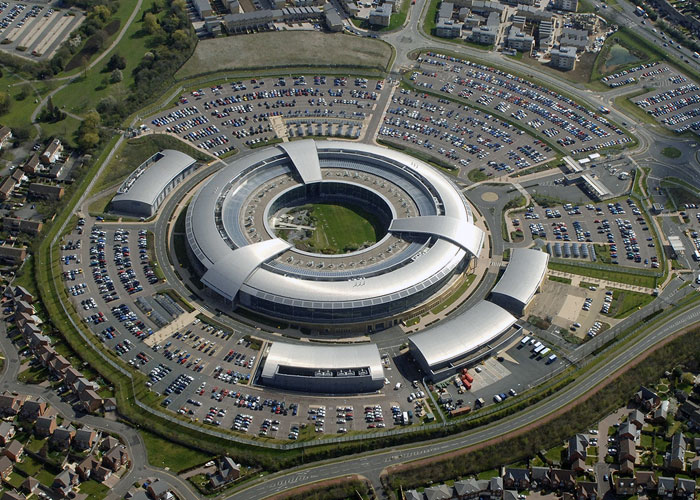GCHQ intelligence service has launched a new female-only competition for teenagers to test their cyber-skills, in an attempt to recruit a wider range of online security experts.
The CyberFirst Girls Competition, set up by GCHQ’s new National Cyber Security Centre (NCSC), is an important step to knock down barriers preventing women from joining the fight against online crime.
Like most STEM careers, males dominate the cybersecurity sector, with women making up only 10 per cent of the global cyber workforce. The new competition seeks to develop and encourage potential female talent to increase diversity in the sector.
Girls aged 13-15 can enter the competition in teams of four, plus a teacher who will act as a guardian and mentor.
The pupils will be put through a series of challenges to test their cyber security skills against young women from all over the UK, with the top 10 teams progressing to a national final in London in March.
GCHQ Director Robert Hannigan said:
“I work alongside some truly brilliant women who help protect the UK from all manner of online threats. The CyberFirst Girls Competition allows teams of young women a glimpse of this exciting world and provides a great opportunity to use new skills. My advice to all potential applicants would be enjoy the experience and I look forward to meeting some of you.”
The move was welcomed by tech leaders. who have worked hard to encourage both diversity and highlight the importance of cybersecurity.
Derek Lin, Chief Data Scientist at Exabeam, said:
“There’s a reason why companies spend millions of dollars workplace diversity programmes. It’s been well reported that conforming thinking is not healthy for a company, or the teams within it. There have been numerous studies that show having a more diverse workplace actually makes an organisation a better place to work. Ultimately a successful organisation needs diverse opinions and ideas – different, and valuable, perspectives on problems.
Any initiative that strives to create a level playing field, regardless of the game, should be encouraged. I have two young daughters and I see absolutely no reason why the choices they will make and the opportunities that will be open to them will be different because of their gender. Whether that’s in the classroom, on the sports team or in the workplace, I expect them to have the same opportunities as anyone else.
I am proud to say that the data science team in Exabeam that I am guiding is gender balanced, at 50-50% women to men. I have come across women from multiple different backgrounds with varying life experiences. Individual women do differ in their attitude to the workplace, but no more or less than men. To me each individual is unique when it comes to mentorship, regardless of gender, and take different paths to progress their growth in their organisation.”
Tara O’Sullivan, CMO at Skillsoft, added:
“Tech and cybersecurity are infamously known as ‘boys clubs’. White, middle-class males dominate the industry. These are the men responsible for the hiring, promotion and retention of women in cybersecurity. But with women still making up a tiny 10% of the cybersecurity workforce, attention to diversity is still lacking.
The reasons for this are multiple. Tech and cybersecurity are, on a broad scale, viewed as jobs for men – by women and men, fathers and mothers, CEOs, teachers and so on. We need a significant cultural overhaul. A female having a career in cybersecurity needs to become a social norm, not a rarity. This starts in schools, where we need to encourage girls to have the confidence to do whatever they want, even if traditionally it was seen as ‘boyish’.
That’s not to say companies can’t take action now. CEOs, executives and company leaders need to demonstrate their attitude to diversity. Being outspoken on this creates a culture and shows you stand for equality in the workforce. Communicating this throughout the whole organisation will ensure the message sticks, and will give women the confidence to take on the roles they want. Getting female talent into the industry is only half the story. We need to make sure they have the confidence and support to progress through their own careers.”
Jan van Vliet, VP EMEA at Digital Guardian, said:
“We’ve all heard over the last several years about how the cybersecurity talent shortage is a crisis. Bridging the gap, by employing a diverse cast of cyber-aware workers, remains a chief concern for CEOs, CISOs, and executives alike. It’s important to educate today’s youth on the importance of cybersecurity and the plethora of roles available throughout the field.”
Alison, who is a deputy director at the NCSC, said:
“Women can, and do, make a huge difference in cyber security – this competition could inspire many more to take their first steps into this dynamic and rewarding career. Having worked in cyber security for over a decade, it is a line of work I would strongly recommend to anybody, and one where lots more women could make a really positive impact on the world. It’s a fantastic career choice where team work, ingenuity and creative thinking are highly valued attributes and the rewards can be substantial.”
Team Guardians can pre-register their interest from 18 January where downloads to a teacher’s pack, T&Cs and Q&As can be found at www.ncsc.gov.uk/events/cyberfirst-girls-competition.
Teams will then be invited to the competition website for full registration from 13 February.


